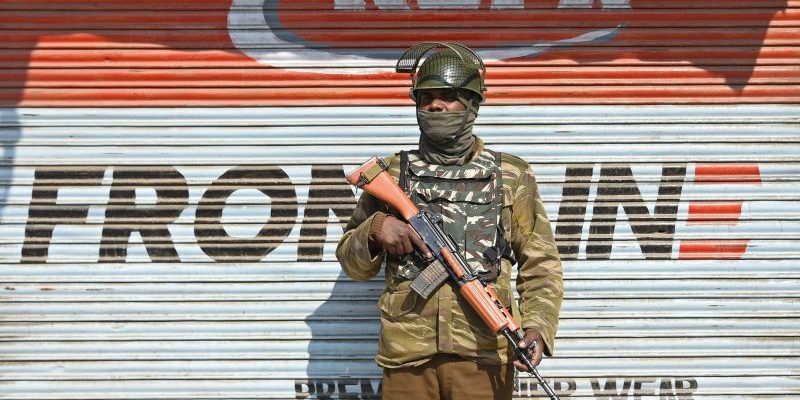Pakistan Claims Kashmir’s ‘Moral High Ground’
Kashmir Updates - Lawrence Pintak - February 28, 2019
The president of Pakistani Kashmir explains why his country deserves far more credit for its role in the disputed region.
KARACHI, Pakistan—“I feel like I am invisible,” the president of Kashmir told me a few months ago. “Wherever I go, no one wants to hear what I have to say.”
On my frequent visits to the Pakistani capital over the last few years, I have often stopped in to see Sardar Masood Khan, whose official title is president of Azad (“Free”) Jammu and Kashmir, as the Pakistani portion of that disputed territory is known. Khan, a former Pakistani ambassador to the United Nations who is Kashmiri, was elected by the Azad Jammu Kashmiri parliament after being nominated by the Pakistani prime minister in 2016. Since then, he has spoken for the government on Kashmir and wandered the world’s corridors of power—from New York to Geneva to Brussels—looking in vain for love or, at least, diplomatic interest.
Kashmir is now at the heart of the military confrontation between India and Pakistan that has pushed the two nuclear-armed countries to the brink of war. It is not the first such violence in the region. Tens of thousands of Kashmiris have died since partition in 1947, particularly after the outbreak of an anti-Indian insurgency in the 1980s. Both sides blame the other for the violence, and they have gone to war three times over the territory. A report last year from the Office of the United Nations High Commissioner for Human Rights noted that “experts believe that Pakistan’s military continues to support” the operations of militants and found that human rights violation on the Indian side were “of a different calibre or magnitude” than those in Pakistani-administered Kashmir because of the actions of both the anti-Indian militants and the Indian military.
- January 26: Kashmir’s Black Day - January 26, 2026
- Unfulfilled Promise of Self-Determination in IIOJK - January 22, 2026
- Socio-Economic Transformation in Kashmir, Post-Article 370: Never Ending Anxieties Of Kashmiris - December 23, 2025






